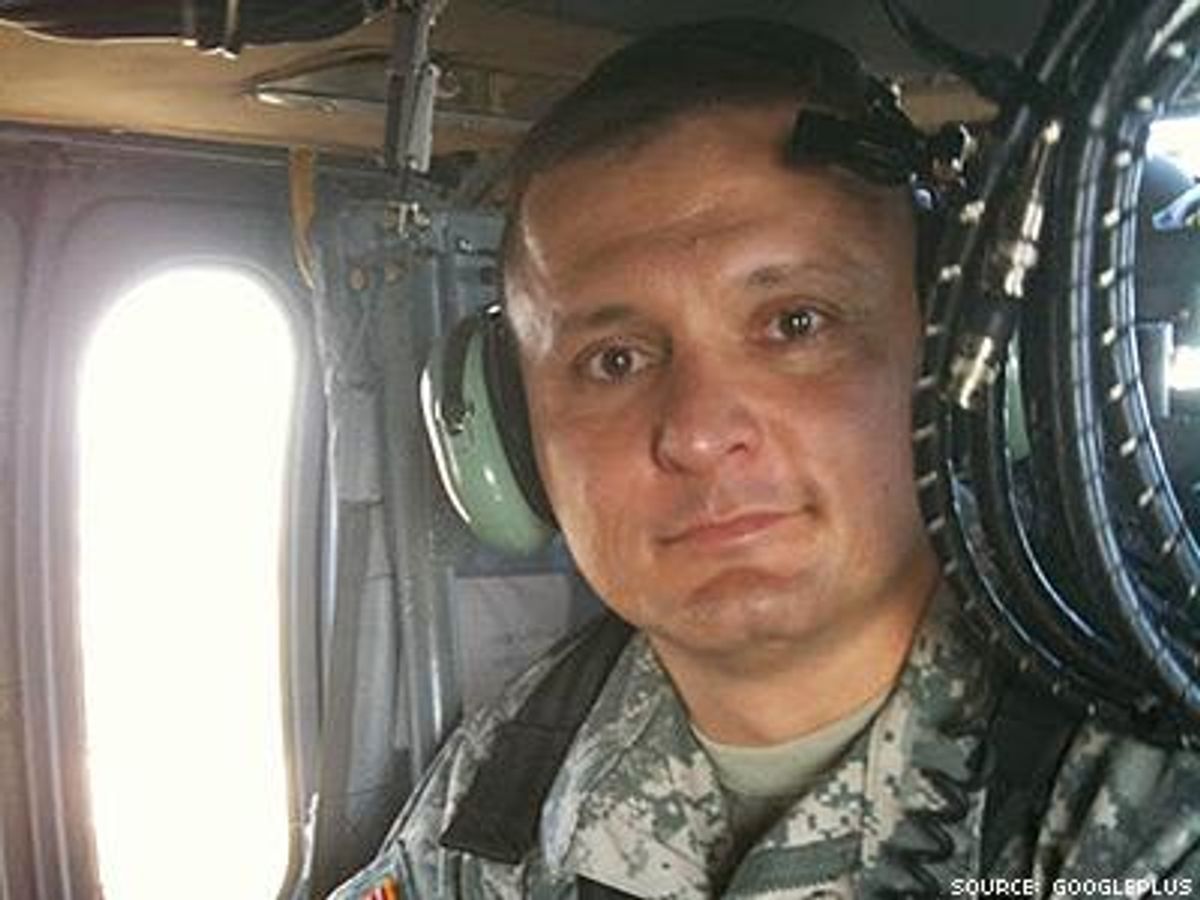Current Department of Defense policies exclude service members living with HIV from enlistment — or deployment if they become HIV-positive while in the service — and threatens those who engage in consensual sexual relations with dishonorable discharge and criminal prosecution.
Under the Uniform Code of Military Justice, crimes that would be minor for civilians are more serious for men and women in military service. “If you [even] get a traffic violation on a military installation, it is prosecuted as a federal misdemeanor,” an elevated charge, says Kenneth Pinkela, military policy director for the Sero Project.
That can also ruin the lives of HIV-positive service members if they are accused of violating “safe sex orders,” which define which sexual activities are allowable for them.
That’s what Pinkela learned in 2008 when he was convicted, dismissed from the Army, and sent to the Fort Leavenworth prison for 272 days. Then a lieutenant colonel in the U.S. Army, he was charged with aggravated assault “solely because of an accusation that I exposed someone to HIV,” he says.
The military HIV prosecutions are based on the code’s safe sex orders. Not following them to the letter can open service members to charges of failure to follow a lawful order. Pinkela says these sex orders typically do not differentiate between types of sex; instead, if you have HIV, any type of sexual contact, with or without condoms, consent, and disclosure, is prohibited. And even with those three things covered, you may still be in trouble.
There is not a standard language across the military branches, Pinkela says; each service has a different order and language. “The Navy is the most progressive,” he says. “They were the first to drop the threat of prosecution and write a more public health–based order for sailors.”
Pinkela’s own safe sex order from 2008 included orders to:
• “verbally advise all prospective sexual partners of your diagnosis prior to engaging in any sexual intercourse.”
• “use latex condoms”
• “not engage in unprotected sexual relations (including but not limited to: sexual intercourse, oral-genital, or anal-genital contact) with persons other than your spouse, or with your spouse unless the spouse freely and knowingly consents to such relations after having been informed of your current medical status.”
It was the latter command that Pinkela and others find most confusing. “It sounds like [you just need] consent, right? Not!” he says sarcastically. Instead, he says, the Army meant that all sex was forbidden outside of a marriage. But back in 2008, the idea of having a same-sex yet federally recognized “spouse” was a pipe dream.
Reviewing Pinkela’s sex orders, you might imagine that he violated them by having consensual sex with another man. Instead, he says, “there was no sex” at all. “My case has no sexual acts in the record of trial. So there was no means for any bodily fluid exposure, and yet I am a convicted felon for aggravated assault — with HIV as the aggravation.”
While civilian cases often hinge on the defendant’s ability to prove his sexual partner was aware of his HIV status, in Pinkela’s case that was never a question. “My accuser testified on multiple occasions to knowing my HIV status before ever being introduced to me,” Pinkela tells Plus. “He says he knew I was HIV-positive, but yet can’t describe what type of sex we had to have exposed him to HIV.”
Pinkela says his accuser, who remains anonymous until the appeals process is over, is apparently the son of two high-ranking Army officials. He says the “facts” of the case were never documented. It was several years after the alleged incident before the accuser came forward, and even then there was no investigation, so all that’s left is a he-said/he-said that left Pinkela’s career in ruins.
This much isn’t disputed: The two men met when a Marine Corps officer and common acquaintance asked Pinkela to mentor the younger serviceman. He agreed and they reportedly had a short, platonic relationship, which ended.
Several years later, after the younger man was diagnosed as HIV-positive, he accused Pinkela of exposing him to the virus. After not seeing each other for months, the younger man claimed the two had consensual sex during the holidays.
Pinkela says the sex never happened and that he now believes the other man orchestrated their meeting in order to have someone to “blame” for his own HIV infection.
But Pinkela wasn’t allowed to argue that or even have the representation of a lawyer for more than a year in the military court-martial proceedings, and when he did receive counsel the military judge denied a simple 30-day delay request to prepare his defense.
In a statement delivered to the Presidential Advisory Council on HIV/AIDS in 2013, Pinkela reported, “The prosecution’s case was focused almost solely on proving that I had HIV. I am quoting directly here, ‘Where there is smoke there is fire…you are HIV-positive, so it must have been you.’ ”
Pinkela’s conviction and imprisonment cost him far more than time. “Now I am a convicted felon and registered sex offender,” he said in that statement. “My 26-year career of service and sacrifice to my nation, including a stint as the Army’s legislative liaison to the U.S. House of Representatives, all retirement benefits, including medical care, are gone.”
Pinkela has continued to fight his conviction and the criminalization of HIV through his work at the Sero Project and supporting legislation like the amendment to the National Defense Authorization Act that requires the Department of Defense to review its policies and criminal prosecutions of military members living with HIV. The act passed with the amendment in 2013, and President Obama signed it into law.
Pinkela called the amendment “powerful” and told The American Independent in 2013, “These prosecutions show the insanity of how we are treating people with HIV.”













































































